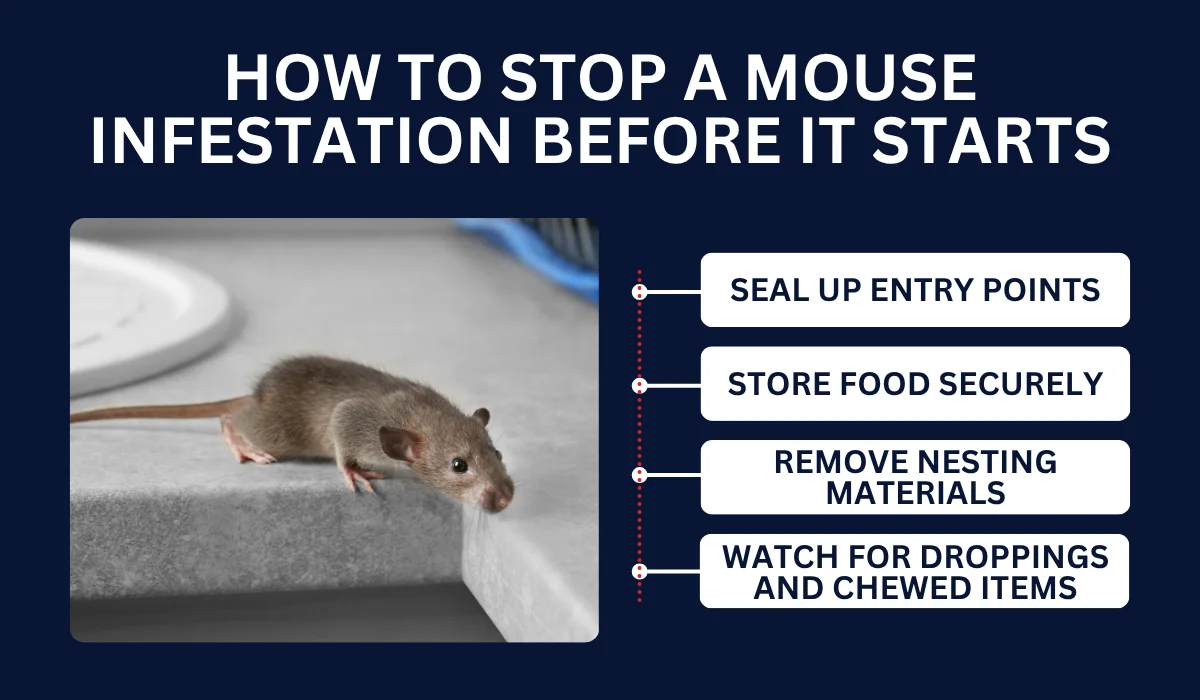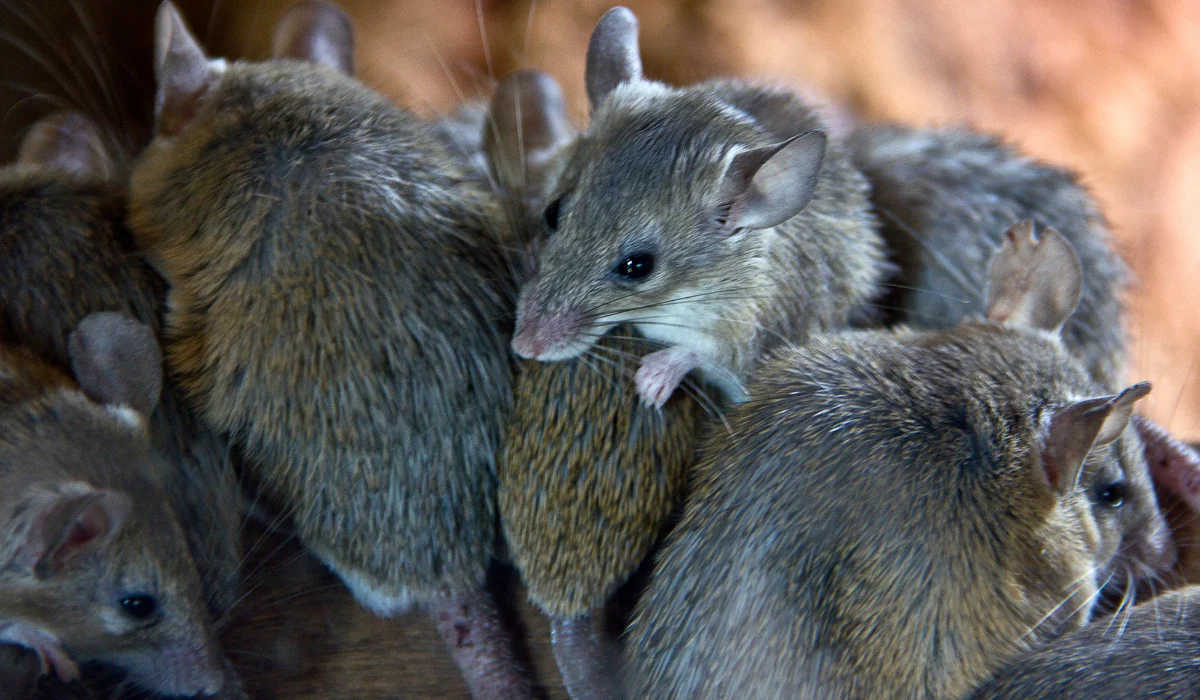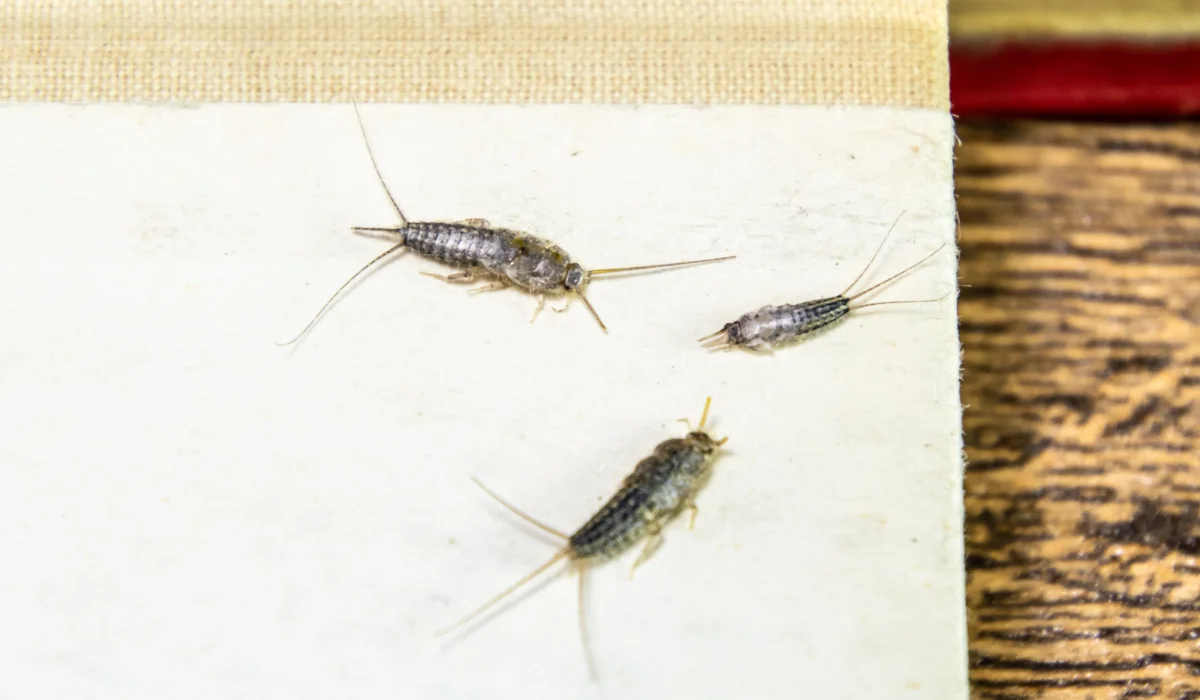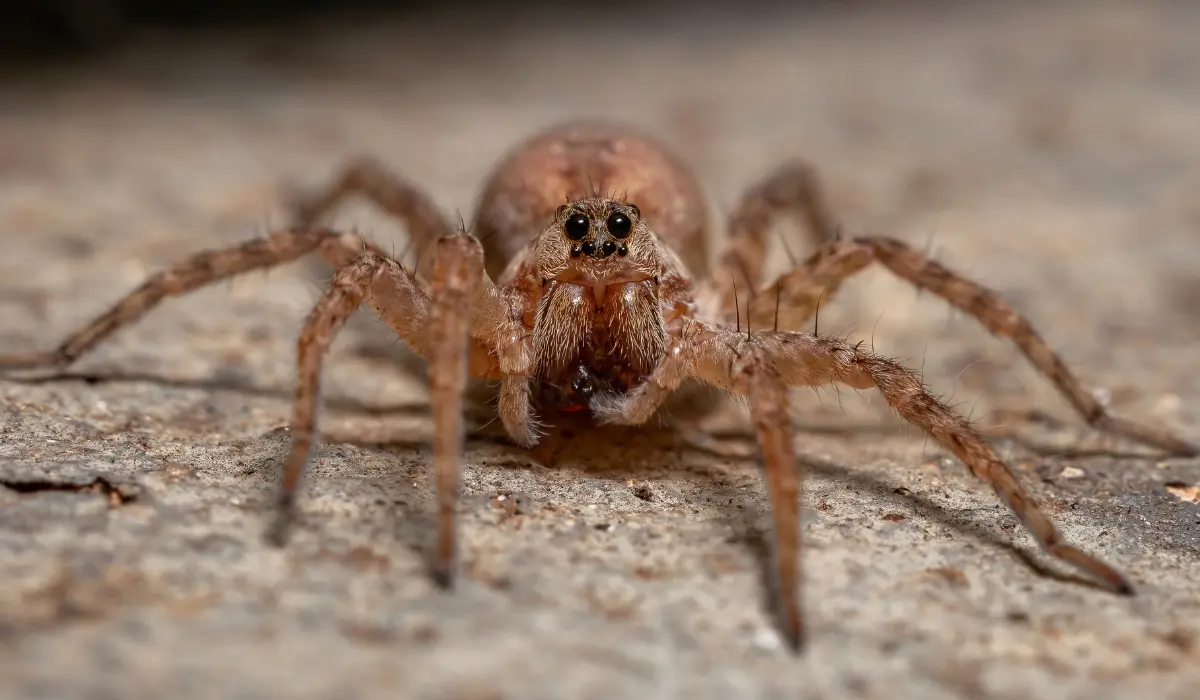If you’re a homeowner in South Louisiana and you’ve noticed signs of a mouse problem, like scratching in the walls or bite marks on food packaging, you may be dealing with more than a single mouse.
Once a female mouse sets up shop in your home, it doesn’t take long before she’s not alone. Let’s break down how fast mice multiply, what their life cycle looks like, and how to protect your home year-round.
Key Takeaways
• A female mouse can have babies every three weeks and grow the infestation to hundreds within months.
• Baby mice develop quickly and start nesting, chewing wires, and spreading droppings before they are five weeks old.
• Unsealed gaps, clutter, and exposed food create the perfect indoor environment for mice to nest and multiply.
• Signs like droppings or gnaw marks mean you should call for year-round pest control to stop mice early.
How Fast Can Mice Multiply in Your Home?
The reproduction rate of house mice is one of the fastest among small rodents.
A female house mouse reaches sexual maturity at just 6 weeks of age and can become pregnant every 20 days. The average gestation period is about 19 to 21 days, and each litter size ranges from 5 to 12 baby mice.
That means a single mouse, if left undisturbed, can lead to a mouse population of over 100 in just a few months.
And because young mice reach sexual maturity in less than two months, things can get out of control fast. Here’s what to know about each stage of the mouse life cycle:
Birth
Newborn mice are completely hairless and blind. These baby mice weigh less than a gram and spend their first days hidden in warm nesting spots like wall voids, attics, or under appliances.
You’re not likely to see them yet, but the signs are there, like soft squeaking sounds or a growing trail of droppings.
1 Week Old
At one week of age, the baby mice are still completely reliant on their mother. By now, they’ve started to grow a light coat of fur, but they’re still hairless around the eyes and ears.
The mother mouse rarely leaves the nest during this stage, as she nurses and protects her young.
2–3 Weeks Old
Around two weeks of age, their eyes begin to open, and their activity increases. By three weeks old, they begin exploring outside the nest, nibbling on crumbs and food scraps.
These young mice are now at the stage where they may start chewing on electrical wires and household items to wear down their teeth.
4–5 Weeks Old
At about a month old, these mice are considered independent. By five weeks of age, many are ready to leave the nest and establish new territories.
Female mice may already be preparing to breed again, especially if conditions in your home are warm and food is plentiful.
Adult Mice
The average lifespan of a house mouse is 12 to 18 months in the wild, but in a climate-controlled environment like your home, some can live up to 2 years. During that time, a single female mouse can give birth to hundreds of offspring.
Without professional mouse control or a natural predator, the reproduction cycle continues without interruption.
How to Stop a Mouse Infestation Before It Starts

If you’ve seen signs of mice or just want to keep them out, it’s smart to take action before the problem grows. Here’s how you can make your home a lot less attractive to them, starting today:
Seal up Entry Points
Most mouse problems start with a gap or crack as small as a dime.
Entry points like utility penetrations, cracks in the foundation, or loose siding offer easy access for these small rodents.
In older homes common around Thibodaux, Houma, and New Orleans, it’s worth checking every crawl space, vent, and roofline.
Store Food Securely
Once inside, mice are on the hunt for food. Leaving out pet food, snacks, or open containers makes your kitchen a perfect feeding ground.
Switch to durable containers and get rid of damaged food packaging. Even the smell of dry goods can attract mice to your pantry.
Remove Nesting Materials
Mice use shredded fabric, paper, and insulation to build nests.
If you’ve recently had a termite inspection, attic work, or mold remediation, now is a good time to declutter.
Piles of clothes, blankets, or even cardboard boxes in attics and garages can provide a perfect nesting environment.
Watch for Droppings and Chewed Items
Mouse feces are often the first sign that you’ve got unwanted guests. You’ll find droppings near food sources, along baseboards, and in the backs of cabinets. You might also spot gnaw marks or shredded insulation.
These are red flags that point to a developing rodent problem.
Why You Should Act Quickly
A few droppings might not seem like a big deal, but it only takes one pregnant mouse to start a full-blown infestation. Mice also pose health risks, as they can carry hantavirus.
And, their constant chewing can lead to damaged electrical wires, creating fire hazards in older homes.
Don’t Wait for the Problem to Spread
Mice don’t hibernate, and without intervention, they’ll breed indoors throughout the year. That’s why LaJaunie’s Pest Control offers year-round rodent control services tailored for homes across South Louisiana.
Whether you’re in Baton Rouge, Kenner, or Metairie, our team can help you stop a mouse infestation before it becomes a serious rodent problem.
Our pest control services include full inspections, attic baiting, exclusion work, and same-day treatments whenever possible.
Reach out to us today for a free quote, and let us help you protect your home and your family with smart, safe solutions that keep mice, cockroaches, bed bugs, and other pests where they belong: outside.
 By: LaJaunie's Pest Control
By: LaJaunie's Pest Control 


